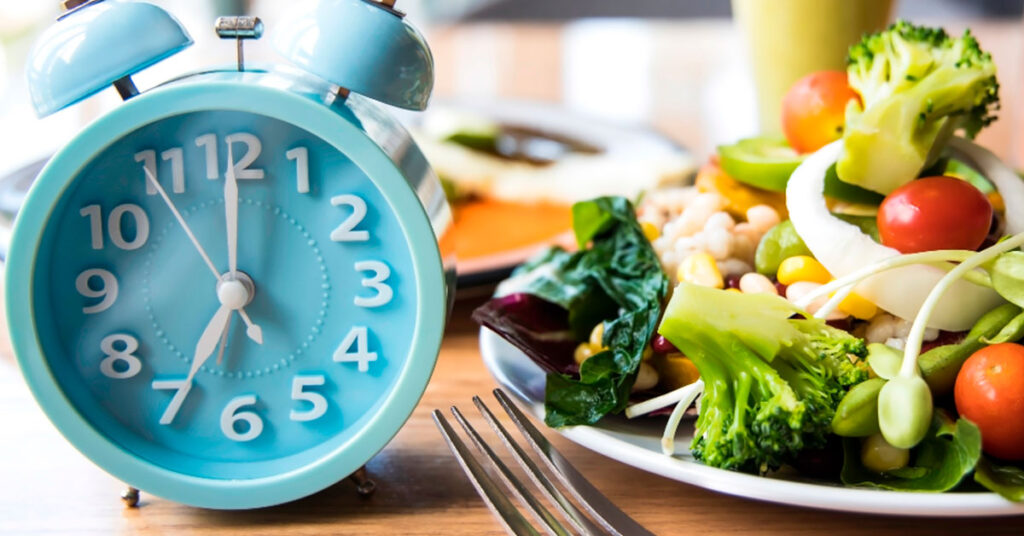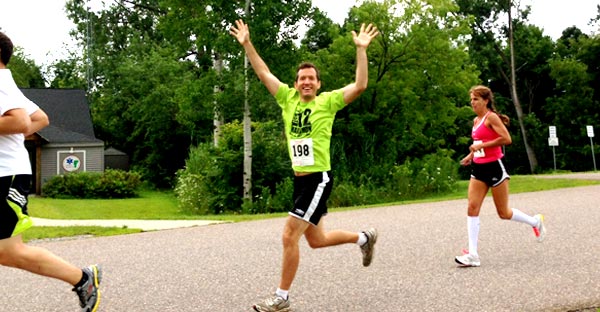

When your body is well fueled and hydrated, you will perform at your best. All too often recreational exercisers and runners mistakenly follow a nutrition plan that’s too low in energy, with the thought that it’s better to cut back on calories and not run the risk of gaining weight. However, it’s important to remember that your body requires energy (calories) in order to maintain muscle mass, enhance the immune system, and ensure proper growth and repair. Let’s recall the three main categories of macronutrients:
- Carbohydrates (the foundation of the sports diet)
- Protein (for muscle growth and repair)
- Fat (for flavor and satiety)
Maximizing Energy and Glycogen Storage
- Eat a high carbohydrate diet on a daily basis.
- Consistently eat enough total calories.
- Consume adequate fluids prior to exercise.
If you’re training for an event or competition, there are some additional fueling tips you’ll want to consider. Always consume a familiar pre-competition meal: don’t attempt any new foods, as this may cause gastrointestinal upset. Training yourself to eat before exercise on non-competition days will help you to be able to eat before competition and improve your performance.
An athlete will typically run out of stored carbohydrate after about 90 minutes of continuous exercise.
From the three macronutrients, carbohydrates play the largest role in supplying energy to the body. In addition, high-carbohydrate foods digest the easiest and fastest. Pre-exercise carbohydrates not only fuel your muscles, but they help prevent low blood sugar. Aim for around 100 to 300 calories of carbohydrate-rich food before you exercise. If you cannot tolerate solid food before exercise, try a plant-based smoothie. Avoid high fat foods, which slow down digestion and may feel too heavy. Remember to hydrate as well.
Pre-Exercise Fueling
Build your meals and snacks around high-carbohydrate foods for optimal energy and endurance. Add in a little protein-rich food for stable blood sugar control. Here are some foods to include:
- Hot or cold cereals (muesli, oatmeal, whole-grain)
- Pancakes or waffles (whole grain)
- Fruit (fresh or dried)
- Whole-grain bread or bagels
- Baked potatoes or sweet potatoes
- Vegetables (include all colors)
- Plant-based milks and yogurts
- Rice, quinoa, wheat berries, couscous, pasta
- Scrambled tofu with vegetables
- Dried beans and peas
Timing of Meals
The timing and size of meals and snacks is important and should proportionally relate to the amount of time you have before exercise. Larger meals generally take up to 3-4 hours to digest. Smaller meals take 2-3 hours, and snacks or liquids take 1-2 hours. A pre-exercise meal is critical if exercise is prolonged (half or full marathon) or when a series of shorter competitions occur over a long period of time, such as a triathlon, track meet, or several soccer, football, or basketball games. This is because an athlete will typically run out of stored carbohydrate after about 90 minutes of continuous exercise.
Hydration: Drink Your Water
Staying hydrated during your workout is essential. Your performance level can decrease significantly if you become dehydrated. Plain water is the drink of choice, and sports drinks are often not recommended unless activity is greater than one hour in duration. Here are some guidelines for hydration:
- Drink a minimum of 2 cups (16 ounces) of water when you get up in the morning.
- Drink 1 cup (8 ounces) of water 10-20 minutes prior to exercise.
- During exercise drink ¾ cup to 1 ½ cups (6-12 ounces) every 15-20 minutes.
- Drink at least 2-3 cups (16-24 ounces) after exercise to replace fluid lost through sweat.
To restore your body’s normal water balance you should replace fluid losses as soon as possible. Remember the motto, “don’t wait to hydrate.” Fluid replacement depends on the amount of sweat lost during the activity, e.g. a step aerobics class vs. running a marathon. Once you’re adequately hydrated, your urine will be a pale lemonade color.
Post Exercise Refueling
Your goals for post exercise nutrition include:
- Replacing depleted glycogen in the muscles
- Consuming adequate protein to repair muscle damage
- Hydrating to restore lost fluid and electrolytes
Ideally, you should begin post exercise nutrition 15-30 minutes after a hard workout (1-2 hour practice session, long runs). During this time frame, muscles are most receptive to glycogen uptake, and there is less chance of suffering from an injury. You don’t have to eat a lot of food. Aim for about 200 to 400 calories of carbohydrate-rich food along with about 10 grams of protein. Most importantly, replace fluid loss, drink your water!
Final Thoughts
As you move forward in your training program, take some time to have fun. The “best” exercise program is one that you enjoy, simply because you’re more likely to stick with it. Every day, eat whole plant foods, move your body, and be kind to yourself.
Copyright 2025 Center for Nutrition Studies. All rights reserved.
Deepen Your Knowledge With Our
Plant-Based Nutrition
Certificate
Plant-Based Nutrition Certificate
- 23,000+ students
- 100% online, learn at your own pace
- No prerequisites
- Continuing education credits







